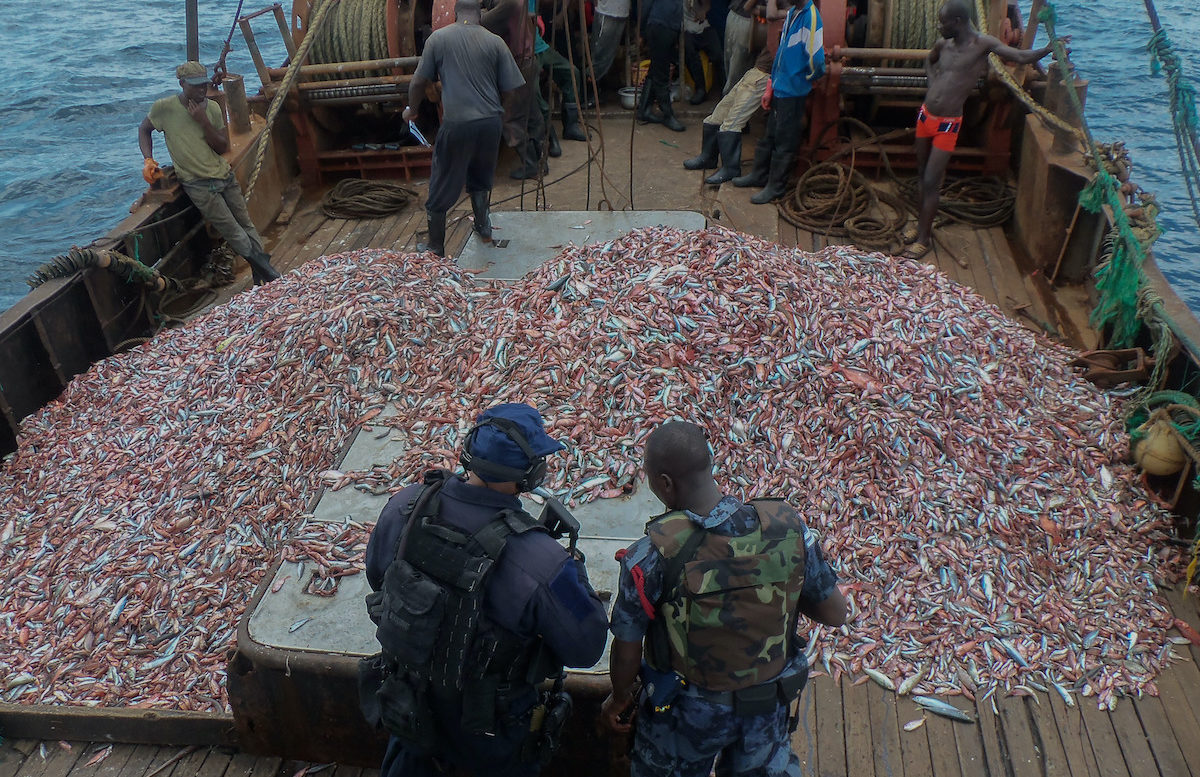Illegal, unreported, and unregulated (IUU) fishing is a social, economic and environmental problem. It undermines management and drives the depletion of fish stocks, threatens food security, and drains valuable resources from the economy.
In recent decades, efforts have been made to build an international regime that can curb IUU fishing. However, implementing this regime and stemming the tides of IUU fishing remains challenging.

At the center of this challenge is the necessity to create capacity in states for the monitoring, control, and surveillance (MCS) of fisheries.
IUU fishing is found in all types and dimensions of fisheries; it occurs both on the high seas and in areas within national jurisdiction, it concerns all aspects and stages of the capture and utilisation of fish, and it may sometimes be associated with organized crime.

Fisheries resources available to bona fide fishers are removed by IUU fishing, which can lead to the collapse of local fisheries, with small-scale fisheries in developing countries proving particularly vulnerable. Products derived from IUU fishing can find their way into overseas trade markets thus throttling local food supply. IUU fishing therefore threatens livelihoods, exacerbates poverty, and augments food insecurity.
On the other hand The European Commission has announced far-reaching reforms to accelerate the reduction of greenhouse gas emissions. Among the proposals constituting the European Green Deal is the adoption of a Carbon Border Adjustment Mechanism (CBAM) to prevent carbon leakage.
In practice, however, CBAM will not only act as a shield for the European Emissions Trading System (ETS) but also incentivize other countries to implement compatible carbon pricing schemes.
We argue that the EU’s CBAM thus de facto has the features of a climate club, but the current proposals and debate do not address how the club would be governed, addressing them involves a trade-off between maintaining control over the direction and ambition of climate policy and CBAM’s legitimacy.














